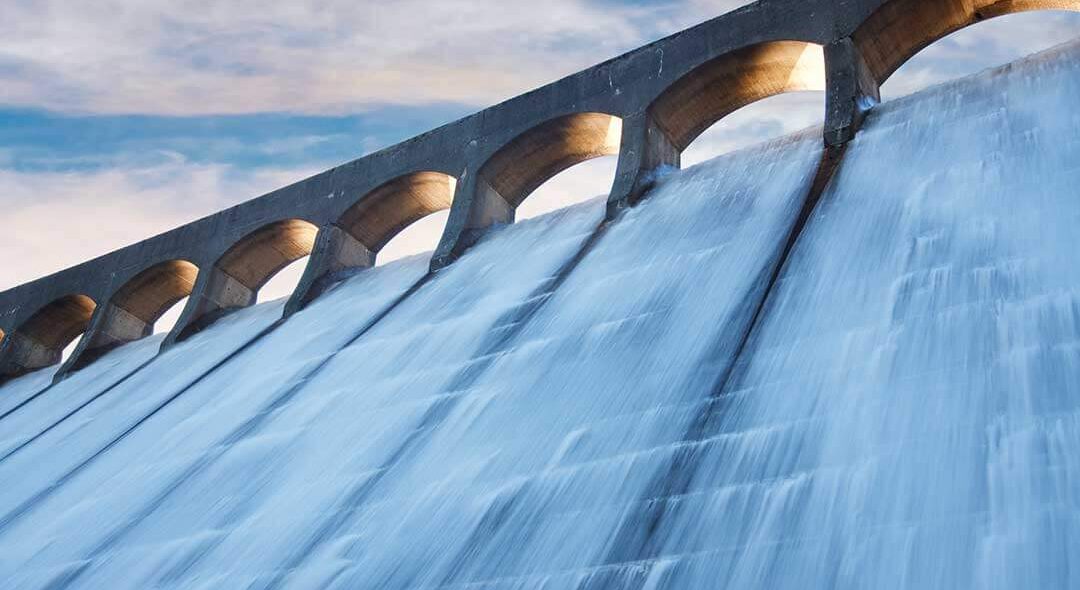- Home
- Resources
- Blog
- Home
- Business General
- What is Critical National Infrastructure (CNI)?
What is Critical National Infrastructure (CNI)?
Learn which sectors are considered vital for the UK, the threats they face, and how we help to connect them
- Neos Networks
- Business General , Public Sector , Wholesale ,

What is Critical National Infrastructure?
Critical National Infrastructure (CNI) refers to the systems, facilities and networks that are vital for the functioning of a country and its economy.
For example, the water supply provides the water we need to live, the energy sector powers our homes and industry, and telecom networks enable us to communicate – connecting our homes, businesses and public services, including emergency services.
CNI also includes some assets that may not be essential to daily life but need protection because they’re potentially dangerous. For instance, nuclear power stations or chemical plants can pose a severe public health threat if attacked or otherwise damaged.
CNI definition
In the UK, the government defines Critical National Infrastructure as:
“Those critical elements of Infrastructure (facilities, systems, sites, property, information, people, networks and processes), the loss or compromise of which would result in major detrimental impact on the availability, delivery or integrity of essential services, leading to severe economic or social consequences or to loss of life.”
In short, CNI is the assets upon which the country depends to function and keep its citizens safe.
CNI sectors in the UK
The UK government designates 13 sectors as Critical National Infrastructure – facilities that are necessary to run the country or potentially dangerous to the public. Some sectors are divided into ‘sub-sectors’. For example, emergency services can be divided into police, ambulance, fire and rescue services and HM Coastguard.
Each sector has at least one government agency, or Lead Government Department, responsible for it.
UK Critical National Infrastructure sectors

Why is CNI important?
If Critical National Infrastructure is disrupted, it can significantly impact the UK and its citizens’ daily lives. Here’s why protecting CNI is vital for the UK.
National security
CNI supports the UK’s defence and security operations. If CNI fails, the UK could be vulnerable to attack from hostile actors or nation-states, including cyberattacks.
Public safety
CNI provides vital services such as water, electricity, health care and transport. Any disruption to these could seriously impact the safety and well-being of the population.
Economic stability
In an increasingly connected digital economy, communications and transport networks are vital to business operations, supply chains, and overall economic stability. Interruptions to this CNI can lead to significant financial losses for organisations and the economy as a whole.
Disaster resilience
CNI helps the UK prevent and withstand terrorist attacks, cyberattacks and natural disasters. When they do occur, emergency response services are critical for coordinating recovery.
Sector interdependence
As much of the UK’s critical infrastructure is heavily interdependent, disruption in one sector can seriously affect another. For instance, the failure of essential IT networks could disrupt the control and coordination of energy supplies.
Overall, CNI is also significant for the country psychologically. At home, robust and secure national infrastructure maintains public confidence in the government and critical service providers. Abroad, it enhances the UK’s reputation and credibility as a country you can trust and do business with.
In short, CNI is crucial for maintaining the defence, economic security, and overall wellbeing of the UK and its citizens.
Threats to CNI
In an increasingly precarious world, the UK’s Critical National Infrastructure faces various natural or human threats, including:
- Cyberattacks: CNI systems are frequently subjected to cyber threats, such as malware, ransomware, phishing and DDoS attacks, which can undermine the integrity of critical assets.
- Sabotage: CNI can be the target of vandalism, terrorism or other acts of sabotage by internal staff or external bad actors.
- Natural disasters: Floods, storms, wildfires or other effects of climate change can affect CNI assets, such as transport, power and water supplies.
- Geopolitical challenges: Regional conflicts and the shifting global power balance can lead to trade disruptions, sanctions, cyberattacks and other hostile actions by states and non-state actors, directly impacting CNI.
- Supply chain risks: Some CNI assets depend on global supply chains for critical components and materials, so they’re vulnerable to shortages if supply is disrupted.
- New technology: Artificial intelligence, quantum computing and other emerging technologies may pose new threats to CNI, requiring ongoing research and protective countermeasures.
In addition, the interdependence of many CNI assets poses a threat in itself: disruption in one sector can quickly ripple across to others. That’s why maintaining and defending the UK’s vital assets requires a multi-faceted approach.
Protecting CNI
To protect the UK’s Critical National Infrastructure, specialist agencies work with CNI organisations and businesses, government departments, the wider UK intelligence community, the police and academia to identify and mitigate risks.
Part of the security service MI5, the National Protective Security Authority (NPSA) provides information, personnel and security advice to CNI businesses and organisations. In partnership with the NPSA, the National Cyber Security Centre (NCSC) provides expert guidance, threat intelligence, and incident response support to protect the UK against cyber threats.
As critical infrastructure systems become more interconnected, the risk of cyber-attacks on sensitive networks increases. Therefore, CNI organisations and businesses require exceptionally robust connectivity.
CNI networks
Critical National Infrastructure needs resilient networks that are always on, whatever happens. That requires dedicated, high capacity connectivity with nationwide reach.
For example, as a CNI provider, we offer Dark Fibre, Optical Wavelengths, Dedicated Internet Access (DIA), Ethernet and more across our B2B-only UK-wide network. We’re working with various CNI partners, including:
-
- Energy sector: Connecting SSE energy assets like the Viking Energy Wind Farm, maintaining around one-third of Britain’s grid
- Emergency services: Enabling Telent to bring highly resilient connectivity for the UK’s Maritime & Coastguard Agency
- Telecoms: Helping CityFibre expand fibre-to-the-premises along the south coast of England
- Local government: Enabling gigabit-capable broadband to public sector sites across Oxfordshire
If you’re part of the nation’s critical infrastructure or just looking for high capacity connectivity for a vital business network, get in touch. We’ll be happy to make connectivity work for your organisation, whatever the future brings.
RELATED PRODUCTS
You might also like
-
Customer Story
How Giganet relied on Neos Networks expansive reach to develop their Southern fibre network
- Business General

Discover our network reach
We can connect you anywhere in the UK
Great news!
"[poscode]" can be reached with our
expanded network
Speak to a representatitive to discuss your options
Contact usLearn about our prices using our online tool, LIVEQUOTE
View LIVEQUOTESorry
"[poscode]" can not be reached with our
expanded network
Speak to a representatitive to discuss your options
Contact usLearn about our prices using our online tool, LIVEQUOTE
View LIVEQUOTE

 ';
';


